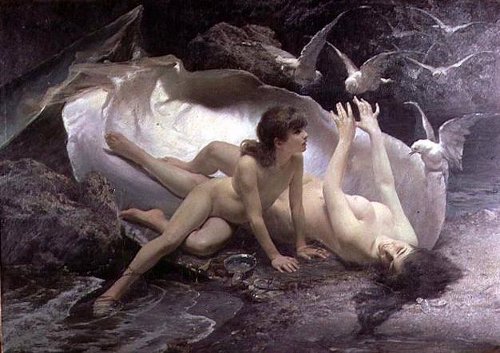
The last canto of Dante’s Purgatorio contains this perplexing sentence:
And if perchance
My saying, dark as Themis or as Sphinx,
Fail to persuade thee, (since like them it foils
The intellect with blindness) yet ere long
Events shall be the Naiads, that will solve
This knotty riddle, and no damage light
On flock or field.
When did water nymphs solve the riddle of the Sphinx? It turns out that Dante was relying on a flawed medieval edition of Ovid’s Metamorphoses that rendered Laïades (meaning Oedipus, the son of Laius) as Naïades, or naiads. He believed that water nymphs had ridden their sea monsters across the desert to solve the Sphinx’s riddle.
The version of the story that we know, in which Oedipus solves the riddle, comes from Sophocles’ Oedipus, which, being written in Greek, was unavailable to Dante. And he cast his own version in such exquisite language that it’s now immortal — one classic work misquoting another.
(Thanks, Jim.)
